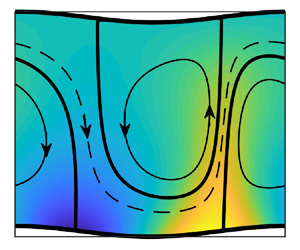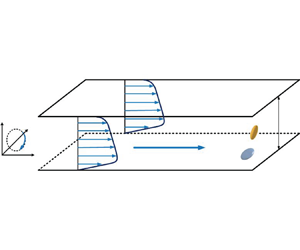Refine listing
Actions for selected content:
1417194 results in Open Access
On the intensification of thermal drift
-
- Journal:
- Journal of Fluid Mechanics / Volume 998 / 10 November 2024
- Published online by Cambridge University Press:
- 31 October 2024, A41
-
- Article
-
- You have access
- Open access
- HTML
- Export citation
The Study of Intraparty Frictions: Conceptual Reflections on Preference Heterogeneity, Disagreement, and Conflict
-
- Journal:
- Perspectives on Politics / Volume 23 / Issue 3 / September 2025
- Published online by Cambridge University Press:
- 31 October 2024, pp. 885-900
- Print publication:
- September 2025
-
- Article
-
- You have access
- Open access
- HTML
- Export citation
The Impact of Climate Change on Persons with Disabilities in Developing Countries: A Scoping Review
-
- Journal:
- Disaster Medicine and Public Health Preparedness / Volume 18 / 2024
- Published online by Cambridge University Press:
- 31 October 2024, e165
-
- Article
-
- You have access
- Export citation
Paul Warde, Libby Robin and Sverker Sörlin, The Environment: A History of the Idea Baltimore: Johns Hopkins University Press, 2021. Pp. 256. ISBN 978-1-4214-4002-6. $27.00 (paperback).
-
- Journal:
- The British Journal for the History of Science / Volume 58 / Issue 1 / March 2025
- Published online by Cambridge University Press:
- 31 October 2024, pp. 153-154
- Print publication:
- March 2025
-
- Article
- Export citation
“Like Us, but Not Quite Us”: Researching Gender Politics in Autocratic Contexts
-
- Journal:
- Perspectives on Politics / Volume 23 / Issue 2 / June 2025
- Published online by Cambridge University Press:
- 31 October 2024, pp. 705-716
- Print publication:
- June 2025
-
- Article
-
- You have access
- Open access
- HTML
- Export citation
Enhancing Patient Transport Systems in the U.S. Department of Defense’s National Disaster Medical System (NDMS) Pilot Program
-
- Journal:
- Disaster Medicine and Public Health Preparedness / Volume 18 / 2024
- Published online by Cambridge University Press:
- 31 October 2024, e185
-
- Article
-
- You have access
- Export citation
SARS Stories: Affect and Archive of the 2003 Pandemic Belinda Kong. Durham, NC, and London: Duke University Press, 2024. 301 pp. $28.95 (pbk). ISBN 9781478025665
-
- Journal:
- The China Quarterly / Volume 260 / December 2024
- Published online by Cambridge University Press:
- 31 October 2024, pp. 1109-1110
- Print publication:
- December 2024
-
- Article
- Export citation
Odd viscous flow past a sphere at low but non-zero Reynolds numbers
-
- Journal:
- Journal of Fluid Mechanics / Volume 998 / 10 November 2024
- Published online by Cambridge University Press:
- 31 October 2024, A40
-
- Article
-
- You have access
- Open access
- HTML
- Export citation
Desired Clinical Applications of Artificial Intelligence in Emergency Medicine: An International e-Delphi Study
-
- Journal:
- Disaster Medicine and Public Health Preparedness / Volume 18 / 2024
- Published online by Cambridge University Press:
- 31 October 2024, e245
-
- Article
-
- You have access
- Export citation
Mao's Third Front: The Militarization of Cold War China Covell F. Meyskens. Cambridge and New York: Cambridge University Press, 2020. 281 pp. £34.99 (hbk). ISBN 9781108489553
-
- Journal:
- The China Quarterly / Volume 260 / December 2024
- Published online by Cambridge University Press:
- 31 October 2024, pp. 1091-1093
- Print publication:
- December 2024
-
- Article
- Export citation
Inside Vladimir Putin’s Hall of Mirrors: How the Kremlin’s Miscalculation of Western Resolve Emboldened Russia’s Invasion of Ukraine
-
- Journal:
- Nationalities Papers , FirstView
- Published online by Cambridge University Press:
- 31 October 2024, pp. 1-19
-
- Article
-
- You have access
- Open access
- HTML
- Export citation
Machine learning enabled compact flexible full ground UWB antenna for wearable applications
-
- Journal:
- International Journal of Microwave and Wireless Technologies / Volume 16 / Issue 8 / October 2024
- Published online by Cambridge University Press:
- 31 October 2024, pp. 1303-1315
-
- Article
- Export citation
Regularized Regression Can Reintroduce Backdoor Confounding: The Case of Mass Polarization
-
- Journal:
- American Political Science Review , First View
- Published online by Cambridge University Press:
- 31 October 2024, pp. 1-9
-
- Article
-
- You have access
- Open access
- HTML
- Export citation
Orientation of inertialess spheroidal particles in turbulent channel flow with spanwise rotation
-
- Journal:
- Journal of Fluid Mechanics / Volume 998 / 10 November 2024
- Published online by Cambridge University Press:
- 31 October 2024, A44
-
- Article
- Export citation
Prograde and meandering wall modes in rotating Rayleigh–Bénard convection with conducting walls
-
- Journal:
- Journal of Fluid Mechanics / Volume 998 / 10 November 2024
- Published online by Cambridge University Press:
- 31 October 2024, A47
-
- Article
-
- You have access
- Open access
- HTML
- Export citation
Manufactured crisis: A response to Al-Hoorie et al. (2024)
-
- Journal:
- Studies in Second Language Acquisition , First View
- Published online by Cambridge University Press:
- 31 October 2024, pp. 1-12
-
- Article
-
- You have access
- Open access
- HTML
- Export citation
Repeatability, Reproducibility, and Diagnostic Accuracy of a Commercial Large Language Model (ChatGPT) to Perform Disaster Triage Using the Simple Triage and Rapid Treatment (START) Protocol
-
- Journal:
- Disaster Medicine and Public Health Preparedness / Volume 18 / 2024
- Published online by Cambridge University Press:
- 31 October 2024, e183
-
- Article
-
- You have access
- Export citation
Preparing for Nuclear Disaster: A Structured Equation Model by Health Professionals
-
- Journal:
- Disaster Medicine and Public Health Preparedness / Volume 18 / 2024
- Published online by Cambridge University Press:
- 31 October 2024, e174
-
- Article
-
- You have access
- Export citation
My Data, My Body, My Rights: Help Shape this Initiative!
-
- Journal:
- Disaster Medicine and Public Health Preparedness / Volume 18 / 2024
- Published online by Cambridge University Press:
- 31 October 2024, e189
-
- Article
-
- You have access
- Export citation
Beyond (Ethno)linguistic Determinism: Diverse Approaches to Nationalism in Habsburg-Austrian Schools
-
- Journal:
- Nationalities Papers , FirstView
- Published online by Cambridge University Press:
- 31 October 2024, pp. 1-13
-
- Article
-
- You have access
- Open access
- HTML
- Export citation










